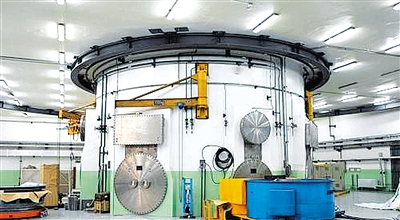 The China Advanced Research Reactor (CARR) at the China National Nuclear Corporation’s (CNNC’s) China Institute of Atomic Energy (CIAE) in Beijing is welcoming global scientists and worldwide cooperation, CNNC said.
The China Advanced Research Reactor (CARR) at the China National Nuclear Corporation’s (CNNC’s) China Institute of Atomic Energy (CIAE) in Beijing is welcoming global scientists and worldwide cooperation, CNNC said.
CARR is a 12-year-old sophisticated and versatile light water tank type unit with heavy water reflector. Its neutron flux ranks first in Asia and third worldwide. Since its launch, CARR has opened its doors to some 50 domestic research institutes and universities in a limited manner.
In 2022, the CNNC upgraded the reactor to meet the growing demands and better serve future clients. CNNC says the institute has now received over 40 international applications for CARR projects, covering aerospace, materials, petroleum and other cutting-edge industries.
"The purpose of the reactor is to serve the country's major needs and solve problems in China's nuclear, aerospace, aviation, energy and transportation industries," Chen Dongfeng, chief expert at CNNC, told China Media Group (CMG).
Hao Lijie, a research fellow of the CIAE said the neutrons can pass through metal materials and detect internal defects in all kinds of thick materials, which are difficult for other types of radiation to achieve. Scientists are now working on research investigating aero-engine blades, examination of high-speed rail wheels and even ancient artifacts from the Western Han Dynasty (202 BC-AD 25).
Xue Xiaogang, secretary of the Party Committee at CIAE, told CMG that "our goal this year is to keep the reactor operating for over 100 days, and we will strive to increase the operating time to 200-250 days in 2024”.
Zhang Huanqiao, a CIAE academician said China had invested CNY1bn ($145m) to build the reactor and invested a further CNY500m in its development and the construction of 15 advanced neutron spectrometers. “Internationally, this device can be described as a neutron science platform, which is highly competitive, so it should be fully used. I believe that the utilisation of these spectrometers can achieve great results in multiple disciplines.”
Image: The China Advanced Research Reactor in Beijing, China (courtesy of CARR)



